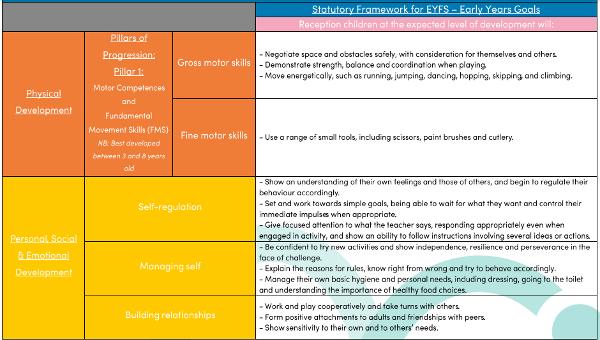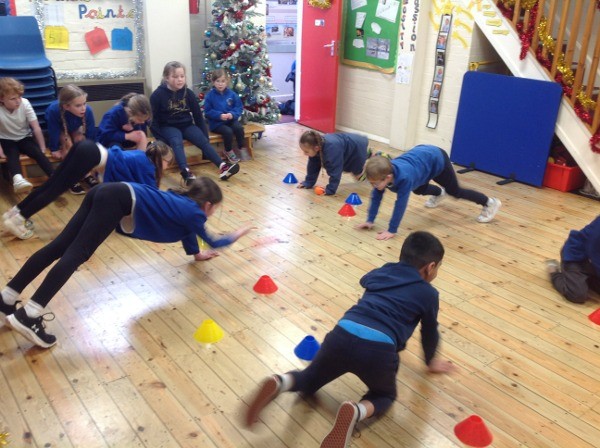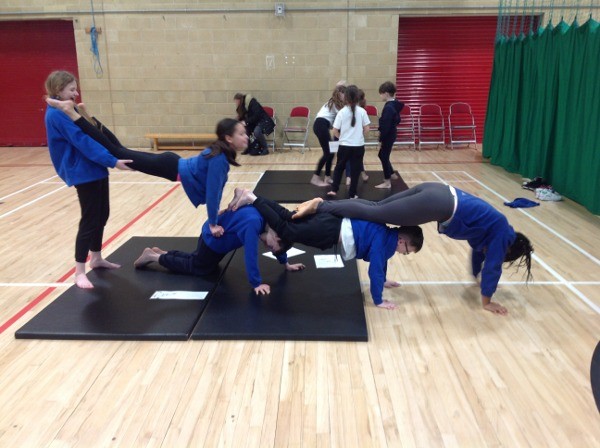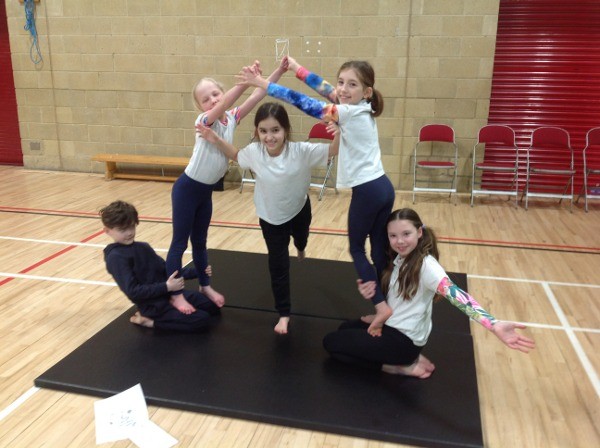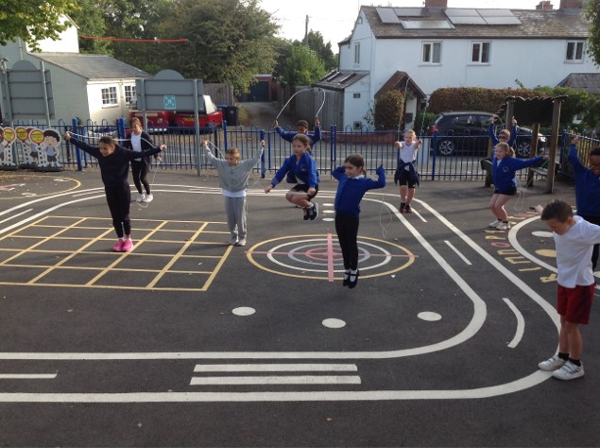"Exercise activates your brain and gives you energy for everything else, the energy to be enthusiastic about your work. So all your school work will gain from physical education."
Dame Darcey Bussell, The Royal Ballet
Intent
The School’s aims for PE, School Sport and Physical Activity (PESSPA) are:
- Provide a broad, balanced and relevant curriculum that satisfies the needs of the current National Curriculum and provide pupils with appropriate challenge with acceptable risk.
- Develop a whole school approach to physical development which takes pupils through progressive stages of learning and challenge, enabling them to fulfil their potential, develop competence and control in the gross and fine motor skills that pupils need to take part in PE and sport.
- Ensures pupils have the opportunity to demonstrate that they know and understand how to apply their competence and make appropriate decisions for themselves by challenging pupils to select and use skills, tactics and compositional ideas.
- Provide pupils with opportunities to use imaginative ways to express and communicate ideas, solve problems and overcome challenges, both as individuals and as part of a team or group
- Ensure pupils understand that PE and sport are an important part of a healthy, active lifestyle and understand the contribution physical activity has on having a healthy body and mind.
- Develop their physical well-being through increased stamina, strength and suppleness, and recognise the positive impact on their emotional well-being and health from engaging in physical activity on a regular basis.
- Be involved in learning about risk management, and their responsibility in this, in order for them to participate independently in physical activity later in life.
- Provide an extra-curricular programme of activities which extends and enriches curriculum provision and provides opportunity for activities to enable pupils to make sufficient progress to access curriculum sessions with greater success
- Provide opportunities for competition appropriate to the stage of the individual pupil’s development
- Ensure that pupils enjoy PE and school sport and establish community links and pathways for pupils to engage in life-long participation
- Provide links to other areas of the curriculum and wider school, county and national agendas
EYFS
In Early Years we nurture children’s strong need and desire to be physically active which builds the foundations for other areas of their development by:
• Building children’s strength, stamina, balance, co-ordination and dexterity
• Developing a range of large and small movements which they can control
• Improving and refining children’s control and manipulation of a variety of tools
• Instilling a sense of confidence in children’s own physical abilities enabling them to negotiate spaces
• Promoting independence by teaching them to make decisions and choices that will keep them healthy and safe.
Dance
In Early Years we capitalise on children’s innate desire to move by:
• Providing freedom for children to be expressive, experimenting with and creating their own series of movements
• Reinforcing children’s responses to music and encouraging choreography and performance
• Cultivating children’s desire to be inventive and imaginative allowing them to express their creativity in ways that are personal to them.
KS1
In KS1, particular attention is paid towards Motor Competence and Fundamental Movement Skills (FMS).
FMS can be categorised as:
<!Locomotor Skills – such as running & jumping
<!Stability Skills – such as twisting & balancing
<!Manipulation Skills – such as throwing & catching
Aims in Sports and Games:
1a: Master basic movements including running, jumping, throwing, and catching, as well as developing balance, agility, and co-ordination, and begin to apply these in a range of activities.
1b: Participate in team games, developing simple tactics for attacking and defending.
1c: Perform dances using simple movement patterns.
KS2
By KS2, pupils should be demonstrating proficiency in FMS. Pupils should continue to progress and demonstrate proficient Motor Competence.
Lessons will have:
<!Increased attention towards Rules, Strategies and Tactics.
<!Increased emphasis on Healthy Participation.
<!Making safe long-term decisions and developing an understanding of the relationships between physical activity and its effect on the body.
Aims in Sports and Games:
2a: Use running, jumping, throwing, and catching in isolation and in combination.
2b: Play competitive games, modified where appropriate, and apply basic principles suitable for attacking and defending.
2c: Develop flexibility, strength, technique, control, and balance.
2d: Perform dances using a range of movement patterns.
2e: Take part in outdoor and adventurous activity challenges both individually and within a team
2f: Compare their performances with previous ones and demonstrate improvement to achieve their personal best.
Aims in swimming and water safety:
Pupils will be taught to:
1d: Swim competently, confidently, and proficiently over a distance of at least 25 metres. 1e: Use a range of strokes effectively.
1f: Perform safe self-rescue in different water-based situations
During both KS1 & KS2 lessons, pupils will be taught a combination of declarative and procedural knowledge.
Declarative Knowledge (knowing what)
Factual knowledge concerning movement, rules, tactics, strategies, health and participation. Best practiced through spoken or written observations of a practical demonstration.
Procedural Knowledge (knowing how)
Knowing how to apply declarative facts. Best practiced through demonstration or participation
Implementation
All pupils are entitled to a progressive and comprehensive physical education programme which embraces current Statutory Orders of the National Curriculum and the statutory EYFS Framework and takes into account individual interests and needs. Our curriculum is based on the ‘PE Planning’ schemes and will provide activities to promote a broad base of movement knowledge and skills, placing students in co-operative, collaborative and competitive situations that aim to cater for the preferences, strengths and needs of every student. We will develop their creative and expressive abilities, and provide situations where students work independently, in pairs and in groups. They will be encouraged to appreciate the importance of having a healthy body and begin to understand the factors that affect health and well-being. Our curriculum is inclusive, and every student has equal access irrespective of their age, gender, and cultural or ethnic background.
In EYFS and Year 1 class (Acorns) Physical education involves providing opportunities for young children to be active and interactive; and to develop their co-ordination, control, and movement. Children are also helped to understand the importance of physical activity, and to make healthy choices in relation to food.
In our school, this is structured so that there are 2 sessions per week aimed at physical development. These are approximately 45 minutes in duration and are aimed at achieving a good level of development and the Early Learning Goals. For the year 1 students in the class, the lessons include knowledge, skills and understanding through dance, gymnastics and games activities. The nature of our mixed classes means that the Early years are exposed to NC objectives early, however, we have small class sizes and are committed to providing additional support for the younger children when needed.
In our mixed age group KS2 classes, Year 2 & 3 (Horse Chestnut) and Year 4, 5 & 6 (Sycamore), physical education involves 2 lessons taught throughout the week, both lead by the class teacher. TAs are present for support during these lessons.
At Key stage 2, swimming is taught by the Swimming Instructor at Stratford leisure centre with support from the staff. Information on progress and assessment of attainment is provided by this person in consultation with the class teacher.
PESSPA is rarely cancelled. The school values regular and frequent lessons to develop children’s skills and abilities. However, we have no suitable indoor facility which will allow the continued implementation of our curriculum in the event of inclement weather. In cases where PE lessons are unable to take place, alternative arrangements will be made. These include class-based activities around a planned activity (e.g. researching rules/ history of a chosen sport, links to science curriculum on the human body, investigating the effects of physical activity on the heart/lungs/whole body). Where possible, the class teachers will take small groups into the limited space available (school hall) and lead an appropriate activity, with modification, aimed at increasing heart rate, practicing movements and developing elements of fitness (e.g. yoga, dance, fitness circuit, age appropriate HITT workouts)
Loxley School do not use PESSPA as a sanction for poor behaviour.
Impact
Children leave Loxley having fostered a love of being active, in sport and other physical activity both in and out of school. They will have been introduced to a wide range of experiences in curriculum PE, extra-curricular activities and other undertakings which provide inspiration for life-long participation in physical activity. Children will have experienced competitive situations as well as sport for pleasure. Children will be able to discuss the importance of a healthy lifestyle and how this is achieved, using the subject-specific vocabulary they will have acquired through their lessons. Through PE, school sport and physical activity, they will have developed valuable life skills such as teamwork, sportsmanship, fair play, self-motivation, resilience, respect and independence.

